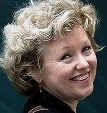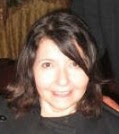
This week I will be giving a workshop at the San Diego Library on how to publish a book. In preparation I contacted some of my writer friends and asked them to share some of their best advice – what they wish someone had told them before they started their careers.
They had terrific tips about how to find an agent, work productively with an editor, and promote their books. While they offered a wealth of information about what to do to publish a book, they also shared some wonderful tips on what not to do.
We’ve all seen photos in women’s magazine in which a victim of bad fashion is featured with a black bar across her eyes. She’s selected as a “Glamour Don’t” because of her dubious choice to couple a cheetah print tank top with a hot pink Minnie Mouse hair bow. Consider the following, the literary equivalent.
“Literary Don’ts”
1. Don’t give an agent an “exclusive look” at your manuscript. When you are just starting out as a writer, it may be very exciting when an agent asks you to cut off all contact with others so she may carefully consider your project. It means she’s serious about you, right? In fact, asking for an exclusive look is a promising sign that this agent thinks your material has potential, but you should never, ever agree to this. Why? It’s great for the agent, but not such a good deal for the writer. The agent now has all the time in the world to ponder over your material (read: procrastinate) while your plan of action is reduced to waiting around. Nine times out of 10, this is a waste of your time.
2. Don’t pay an agent to read your manuscript. A real agent (read: non-charlatan) makes her money by selling your manuscript to interested publishers. Typically, an agent’s fee is 15%. They do not charge authors to read or offer comments.
3. Don’t get so excited that an agent is interested that you forget to ask questions. It is thrilling when an agent asks to represent you, but just because she wants you, doesn’t mean it’s the right fit. What is her style? What is her ideal client like? What deals is she most proud of? Does her agency have an aggressive foreign rights rep? Who does she work with in the film industry?
4. Don’t take advice that doesn’t feel right. If an agent or editor asks you to revise your work so much that you end up hating it, it’s time to have an amicable break up. Workshop your manuscript. Listen to trusted readers. Revise, rework and polish. But be sure you feel every new draft is getting better.
5. Don’t ask huge favors of people you don’t know. There’s a fine line between being a go-getter and pain in the ass. For example, I think it’s perfectly reasonable for writers to ask each other for cover blurbs even if they’ve never met. I’ve asked writers. I’ve been asked by writers. As long as there’s a legit book deal and certain publication, it’s all good. But the woman who showed up at my book party holding her daughter’s 600-page manuscript insisting that I “get it” to my publisher definitely crossed the line. She winked and promised me I’d thank her some day when the book hit the best-seller list.
6. Don’t oversell. Be confident about your work. Highlight your achievements as a writer. But if you describe your manuscript as “an epic historical drama so moving and poignant, it will surely become an instant classic.” This is the kind of thing other people say about books, not the author. Let your writing speak for itself.
7. Don’t quote your Mom. Unless your mother is Jackie Collins, no one cares if she loved your book. When pitching to an agent, do not tell her that your mother, your friends, or your Bunco group all loved your book.
8. Don’t tell people your book is about your life and all the cool stuff you’ve done. Have a definite focus for your memoir, novel or non-fiction book. You should be able to describe your concept in one sentence, or the time it takes for an elevator door to close.
9. Don’t mistake a first draft with a manuscript that’s ready to be seen by agents and publishers. It is exciting to complete a first draft. As a closure person myself, I know how fun it is to check a box that shows I’ve completed something. But it is critically important that you take the time to revise, workshop, revise and revise again. It is important to finish and get your work out there – but only when it’s really, truly ready.
10. Don’t think your publisher has a grand publicity plan for you. Sure, if you’re a New York Times Bestselling author, your publisher has assigned its best publicist to promote your book. If you’re like most, you’ll be pitching yourself to radio stations, newspapers and magazines on your own. Or you’ll hire a publicist with your own money. Either way, you’ll be the one being interviewed on TV, radio and in print, so get ready to hit the media circuit.
Of all of the “Literary Don’ts” you could commit, the worst one is this: quitting. Most people who want to write a book take themselves out of the game too early. They get a few rejections and figure the professionals know best – and throw in the towel. Getting published is simply a war of attrition. Just ask J.K. Rowling, whose mega best-seller, Harry Potter was rejected by 12 publishers, or John Grisham whose first novel A Time to Kill was rejected by 16 agents, then a dozen publishers. Most successful writers will tell you that their path to publishing was paved by failure, rejection and mistakes. If you’ve already made some of these fumbles, so what?
The world is a forgiving place. Now you know better. Move on, don’t make the same gaffe twice, and go get yourself published!












6 comments:
Great, helpful post, Jennifer!
Great list. Glad I found your blog.
Jennifer,
That's excellent advice for novice writers but it's also a great brush up for veterans. Thanks for sharing.
Your advice is thoughtful and incredibly useful for all us writers. I am going to take a line from each of your points and use it as a mantra, especially the "don't give up" part! thanks!
Great post. I would concur that the main attribute for someone who wants to be a writer is PERSEVERANCE.
I live by my favorite quote:
"Never sleep under the same roof as a rejected manuscript."
PS: Aspiring cookbook writers: ALWAYS TEST YOUR RECIPES. The greatest turnoff for readers or editors is a recipe that doesn't work.
The no.4 don't answered my question, somewhat. The thing is I want to be a published writer so I submitted my manuscript to one of publishing houses in my country. After a few weeks I got an e-mail from them saying that they're interested in my manuscript but they would like me to cut it in half. Ouch! Somehow it just doesn't feel right.
Post a Comment